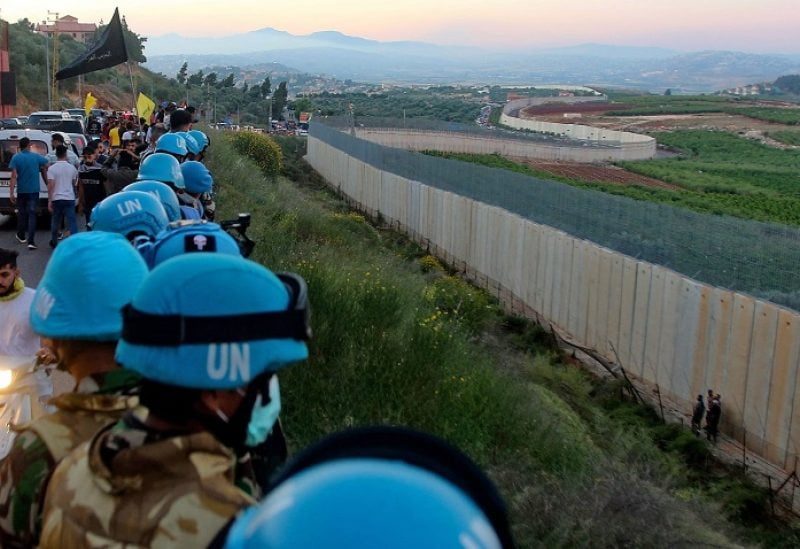
UNIFEL forces in South Lebanon
“The UN Security Council will convene in a closed session next Wednesday to discuss the report of the UN Secretary-General Antonio Guterres on the implementation of Resolution 1701.
The report covered the previous four months until October 21, just about two weeks after the start of the Israeli war on Gaza, parallel to the violation of the resolution in the south, which accompanied this war and remains among the causes of conflict until now.
Although the report’s timeframe did not fully address this war, its complications, and its repercussions on the deterioration of the situation in the south, the timing of discussing the report holds great significance. Council member states will discuss the southern situation and the dangers threatening Lebanon should this war escalate. They are expected to take a clear stance calling for commitment to Resolution 1701, according to well-informed diplomatic sources, and to prevent Lebanon from being exposed to destruction.”
The caretaker Prime Minister, Najib Mikati, consistently reiterates Lebanon’s commitment to and respect for resolutions, despite military operations in the south practically threatening the execution of these resolutions. They also jeopardize the safety of the international force operating in the south, UNIFIL, and the security and stability in a region integral to the mandate and goals of the resolution.
According to what diplomatic information told “Sawt Beirut International,” it’s unclear whether the Security Council will issue a presidential statement at the end of the discussion. However, Lebanon can request China, the current president of the Security Council, to work on that, and it can also ask the country representing the Arab group in the council, currently the UAE, for the same.
On the other hand, Israel can turn to the United States to request a presidential statement leaning toward its performance in the south.
Regardless, whether the Security Council resorts to issuing a presidential statement and the statement’s direction, or if it resorts to an expression of stance or refrains from a response, is a decision for the council. However, it represents the international direction and the ways the international organization deals with the southern file and developments related to Resolution 1701. All these possibilities are still under consideration.
Lebanon and Israel are still in a phase of hostility suspension concerning the provisions of Resolution 1701. They haven’t practically reached a ceasefire, and Israel, since before the war, has been and continues to violate the resolution, met by Lebanon’s complaints to the Security Council.
Three Security Council sessions are held in one year regarding the implementation of Resolution 1701. This Wednesday’s session occurs under different circumstances than its predecessors. It’s not just about daily violations but potentially an entire regional war that could extend to southern Lebanon or within it. The situation isn’t solely about Resolution 1701 but encompasses all commitments of Lebanon and Israel towards international decisions as a whole and the relevant international legitimacy decisions concerning Lebanon and the region.
Will Lebanon collaborate and coordinate with the countries in the Security Council to issue a presidential statement? Or will Lebanon instruct its delegate to step out to the entrance of the United Nations building and broadcast a statement? Alternatively, will the presidency of the Security Council issue what’s called a “paper” that includes a factual account, a subtler form compared to the presidential statement?